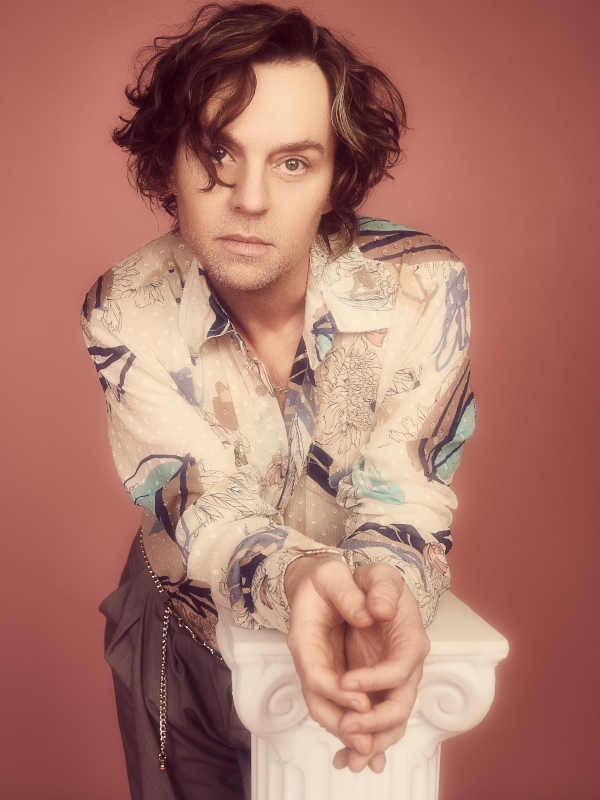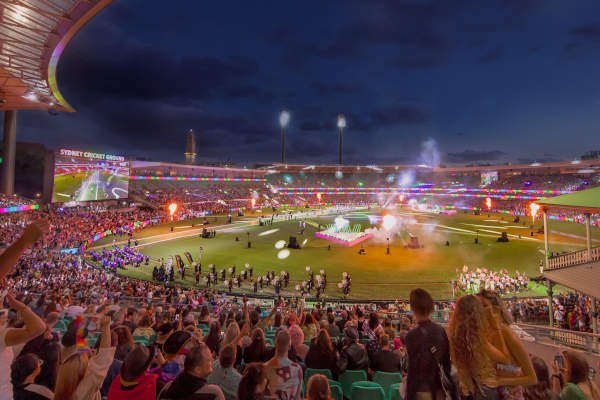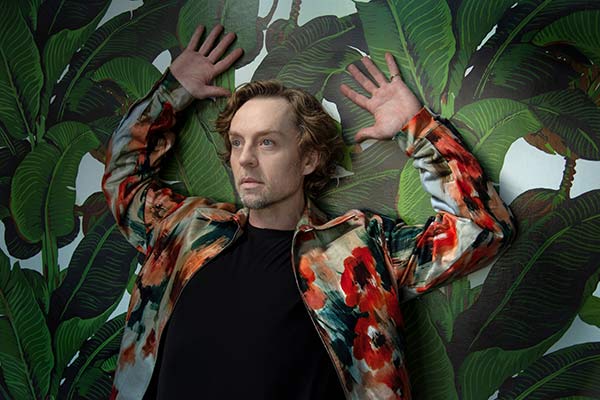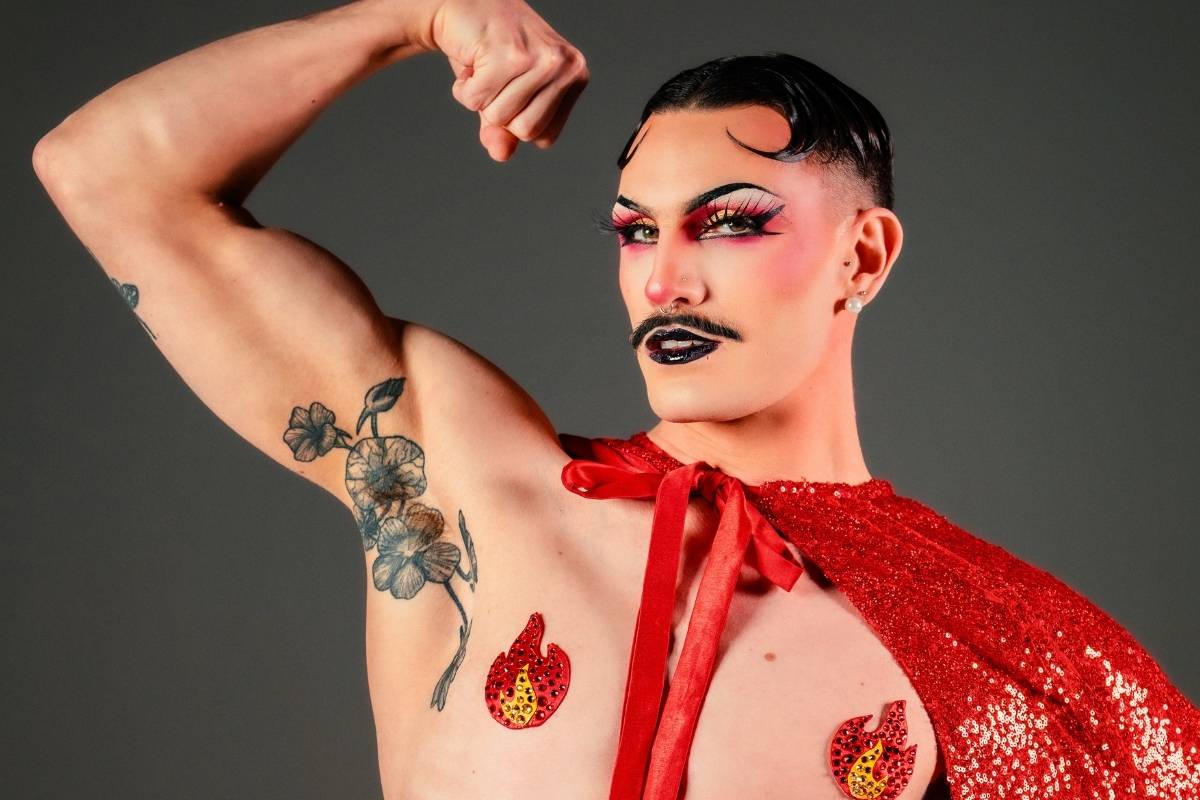Since 1996, he has released a number of hugely successful musical projects, as one half of duo Savage Garden and as a solo artist.
The Parade performance will be his first on home soil in more than ten years, and Hayes says he couldn’t be more excited to introduce Australia to the person he’s become.
But far from the glittering superstar Australia’s about to re-meet, a young Darren Hayes struggled to find himself in his hometown of Logan, Queensland, under the reign of Bjelke-Petersen and the hypermasculinity of mainstream media.
“I grew up in a proudly working-class neighbourhood. And in the 1970s, we were still under this umbrella where it was not considered normal for men to have a broad spectrum of emotions in general. So there wasn’t a lot of room for anything outside the binary.
“I was poor, but I didn’t realise it because a lot of my friends and family came from the same socio-economic background. And I think I learned a lot of my morals and ethics about what was really important because we didn’t have a lot.

“In terms of being a gay child, there weren’t a lot of role models, so it was hard for me to even realise I was gay. I look back and realise I knew people who were gay, I just didn’t know I knew people who were gay.”
The HIV/AIDS crisis of the 1980s did little to help Hayes accept his sexuality. Now entering what should have been his radical teen years, Hayes says he was instead rocked by growing intolerance and the fear induced by Australia’s famous Grim Reaper ads.
“I was being indoctrinated with these messages that not only was being gay considered a sin by the church, but now there was apparently this ‘plague from God’ that was killing gay people. The reaction to HIV was absolute fear, hysteria, and condemnation. There was no compassion.
“As a young, gay child who didn’t know they were gay – or secretly, I prayed to God not to make me gay – I knew any time I tried to express those feelings, I was moderated. I would be put back into a box. I would be told my language wasn’t appropriate, or my behaviour wasn’t appropriate.

“I was told the symptoms for HIV were swollen glands. And I remember doing everything I could to get my mother to take me to the doctor. I thought if the doctor would just examine me, he would feel that I had swollen glands, and then maybe he could tell my mother I was gay. And that would take this enormous weight off my shoulders. And then maybe that would solve everything.”
Fast forward to 2013, and Hayes is marrying his husband for the third time in support of marriage equality. They’d met months after Hayes’ first Mardi Gras performance in 2005, when he still hadn’t publicly come out. Now that battle had come and gone, Hayes says there was still work that needed to be done.
“The part I hadn’t put together was that until I really loved myself, I couldn’t love another human being. I thought that once I came out, once I started dating men, that that would just fix everything. But it didn’t. Because I was still carrying a lot of internal shame and homophobia within myself.
“I had to heal. I was in therapy for a long time because I came from a violent family: my dad was an alcoholic and was violent, and he beat my mum up. So I was used to hiding secrets – not just from the world, but even from myself.
“To me, ‘coming out’ was just so frustrating that I didn’t want to deal with it. But once I finally met somebody who was loving, and who I could have a healthy, reciprocal, non-toxic relationship with, then I was proud. Then I wanted to shout it from the rooftops, and was happy to do that.”
Hayes’ Mardi Gras 2022 performance marks 20 years since his debut as a solo artist, and 25 years since his debut album with Savage Garden. He describes his latest single, 'Let’s Try Being In Love', as his ‘rebirth’ – its film clip offering raw insight into the person he’s become.
“I’m always going to be a pop star who wants to wear sequins and loves lights and wants to strike a pose. But for me, one of the most powerful moments in the clip is where I’m holding another person’s hand. I realised I’ve never f...ing done that in a video.
“I look at that performance and see the physical intimacy – how comfortable I am with other human beings – as new for me. I just feel more comfortable in my skin. And that’s what’s in every aspect of the music video: I’m kinder to myself now, and that’s something that’s taken a long time to be.
“There isn’t a single sound in this music that I haven’t chosen. There’s not a single thing in this music video that I didn’t place there. There’s not a font, there’s not a gel on the light, there’s not a cut in the edit. And that’s not narcissism: it’s just because I’ve never done that before.”
Hayes also says he’s ‘genuinely touched’ to be invited back to perform for Mardi Gras and debut this new era of his music as a member of Australia’s LGBTQIA+ community.

The Parade will be Mardi Gras' biggest night – an explosion of love, colour, protest, expression and glitter featuring more than 6,500 marchers across more than 160 floats, and Darren's performance as the centrepiece.
It will once again take place at Sydney Cricket Ground – a move originally (and very successfully) executed in 2021 as a result of COVID restrictions.
“I was really blown away by what Mardi Gras achieved last year," Hayes reflects. "It showed that if you work together as a community, you can do something safe. You can inspire people. Through the power of music and community, you can lift people’s spirits. And we really need that at the moment. I think we all need a moment of levity."
“The first time I did Mardi Gras was six months before I met my husband, and I couldn’t imagine a future happiness for me. My mental health back then was so bad. And to be in the headspace that I’m in now, and to be in the world that I’m in now, I have a lot to say.
“This Mardi Gras is a chance for me to come back and feel what it’s like to stand there as a part of the community – as opposed to this outside observer. I feel so strongly that representation matters, and being proud of who I am is relatively new to me. So the idea of coming home is very emotional for me, but I also feel a responsibility.”
Darren Hayes plays the Sydney Gay And Lesbian Mardi Gras Parade on 5 March at Sydney Cricket Ground. 'Let's Try Being In Love' is out now.






